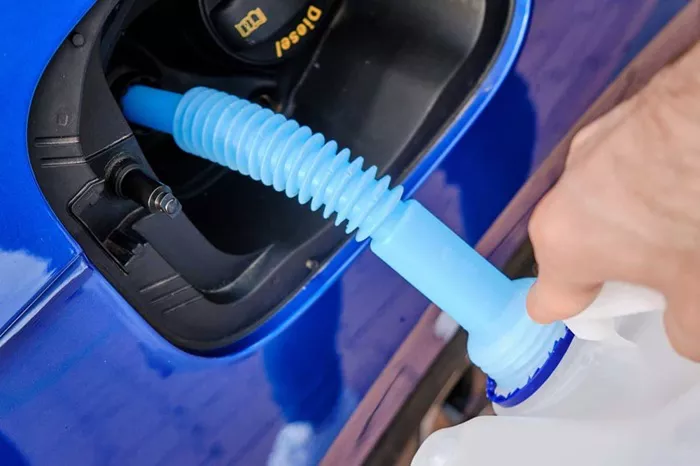In recent years, diesel engines have come under increasing scrutiny due to their environmental impact. As regulations become stricter to reduce harmful emissions, technologies and additives have been developed to help diesel engines comply with these standards. One such solution is Diesel Exhaust Fluid (DEF). This article explores the significance of DEF in modern diesel engines, how it works, its benefits, and its role in maintaining both vehicle performance and environmental compliance.
What is Diesel Exhaust Fluid?
Diesel Exhaust Fluid (DEF) is a crucial component in the Selective Catalytic Reduction (SCR) system used in modern diesel engines. DEF is a non-toxic, clear liquid composed of 32.5% urea and 67.5% deionized water. Its primary function is to reduce nitrogen oxide (NOx) emissions from diesel engines, a key contributor to air pollution and smog.
The Role of Diesel Exhaust Fluid in Emission Control
How DEF Reduces Nitrogen Oxide Emissions
Diesel engines produce significant amounts of NOx during combustion. NOx emissions are harmful pollutants that contribute to ground-level ozone formation and smog. To mitigate these emissions, modern diesel engines are equipped with SCR systems that utilize DEF.
When DEF is injected into the exhaust stream, it reacts with the NOx gases in the SCR catalyst. This reaction converts NOx into harmless nitrogen and water vapor. The SCR system is highly effective at reducing NOx emissions, often achieving reductions of up to 90%.
SCR Technology and Its Benefits
The SCR technology is designed to work in conjunction with DEF to meet stringent emission standards. By integrating DEF into the exhaust system, SCR technology enhances engine efficiency and minimizes environmental impact. The benefits of using DEF include:
Significant Reduction in NOx Emissions: DEF helps engines meet regulatory standards by significantly lowering NOx emissions.
Improved Fuel Efficiency: By reducing emissions, SCR technology allows engines to operate more efficiently, potentially improving fuel economy.
Compliance with Regulations: Using DEF ensures that vehicles meet emissions standards set by environmental agencies, avoiding penalties and contributing to a cleaner environment.
How Diesel Exhaust Fluid Works
The Injection Process
DEF is stored in a separate tank within the vehicle, distinct from the diesel fuel tank. The fluid is injected into the exhaust system via a precise dosing system. This system ensures that the correct amount of DEF is delivered to the SCR catalyst based on engine operating conditions.
The Chemical Reaction
Once injected, DEF is atomized into a fine mist and mixes with the exhaust gases. The urea in DEF reacts with NOx in the SCR catalyst to produce nitrogen and water vapor. This reaction occurs at high temperatures and is facilitated by the catalyst, which is designed to promote the conversion of NOx into harmless byproducts.
The Role of the SCR Catalyst
The SCR catalyst is a critical component of the emission control system. It is typically made from materials such as titanium dioxide, zeolites, and other compounds that enhance the chemical reaction between DEF and NOx. The catalyst helps maintain the efficiency of the SCR system, ensuring effective emission reduction over the lifespan of the vehicle.
See also: Why is CO2 So Bad for the Environment?
Benefits of Using Diesel Exhaust Fluid
Environmental Benefits
Reduction in Air Pollution: DEF plays a crucial role in reducing NOx emissions, which are harmful pollutants that contribute to smog and acid rain. By using DEF, diesel engines help improve air quality and contribute to a healthier environment.
Compliance with Emission Standards: DEF enables diesel engines to meet stringent emission regulations set by environmental agencies. This compliance helps reduce the overall environmental impact of diesel vehicles.
Operational Benefits
Enhanced Engine Performance: By reducing NOx emissions, DEF allows engines to operate more efficiently and at optimal performance levels. This can lead to improved fuel economy and reduced engine wear.
Extended Engine Life: The use of DEF and SCR technology can help extend the lifespan of diesel engines by reducing the strain on engine components and lowering operating temperatures.
Economic Benefits
Cost Savings: While DEF adds an additional cost to operating diesel vehicles, it can lead to long-term savings by improving fuel efficiency and reducing maintenance costs. Additionally, compliance with emission regulations helps avoid potential fines and penalties.
Increased Vehicle Resale Value: Vehicles equipped with DEF and SCR technology may have higher resale values due to their compliance with emission standards and improved performance.
Challenges and Considerations
Proper Handling and Storage
DEF must be handled and stored correctly to ensure its effectiveness. It should be kept in a cool, dry place away from direct sunlight and extreme temperatures. DEF should also be stored in a clean container to prevent contamination, which can affect its performance.
Understanding DEF Consumption
The consumption rate of DEF varies depending on the engine and driving conditions. Generally, DEF consumption is approximately 2-3% of the diesel fuel consumption. Vehicle operators should monitor DEF levels and refill as needed to ensure continuous compliance with emission standards.
Potential Impact on Vehicle Maintenance
Regular maintenance of the SCR system is essential to ensure optimal performance. This includes checking the DEF system for leaks, ensuring proper dosing, and inspecting the SCR catalyst for signs of wear or damage. Proper maintenance helps prevent issues that could affect emission control and engine performance.
Conclusion
Diesel Exhaust Fluid is a vital component in the modern diesel engine‘s emission control system. By reducing nitrogen oxide emissions through the SCR technology, DEF helps diesel engines meet stringent environmental regulations and contribute to cleaner air. The benefits of using DEF extend beyond environmental compliance, offering operational and economic advantages as well. Proper handling, storage, and maintenance of DEF are essential for ensuring its effectiveness and the overall performance of the diesel engine. As diesel technology continues to evolve, DEF will remain a key element in achieving sustainable and efficient diesel-powered transportation.
Related topic:

